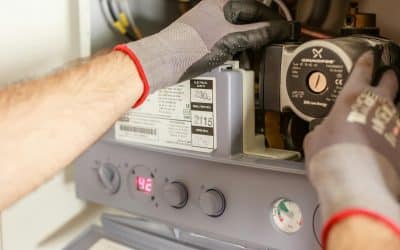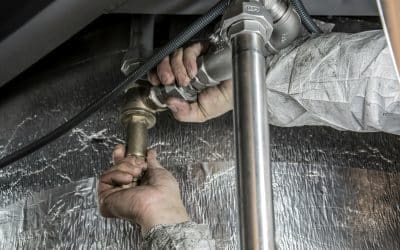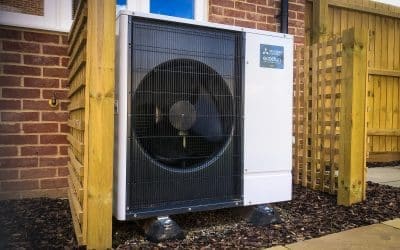Domestic heat pumps are extremely energy efficient and this is perhaps one of the major benefits of installing them. The energy efficiency of air and ground source heat pumps can be greater than 300% because they transfer heat instead of producing it. Although, the bigger challenge here is to maintain the level of efficiency for heat pumps to be a fruitful investment.
The efficiency of domestic heat pumps is based on how hard they work to keep the temperature in your home comfortable. Here the flow temperature plays a huge role in determining the efficiency of the heating systems. This is why larger radiators tend to be more efficient.
With underfloor heating and bigger radiators, the heat pump doesn’t have to work too hard to heat your home. So naturally, its efficiency increases.
How Do I Measure Heat Pump Efficiency?
The efficiency of a heat pump can be measured by its Coefficient Performance or CoP. CoP reflects how air and ground source heat pumps, heat your home in an efficient manner. Using this scale of measurement, the efficiency of air source heat reaches up to 4 while that of ground source heat pumps can go as high as 5. This shows that for every unit of electricity consumed, domestic heat pumps generate 4 to 5 units of heat individually.
When we look at it closely, electric heaters run at around 100% efficiency. This basically means that for every unit of electricity they consume, they produce 1 unit of heat in return. When you take this into consideration, you’ll see that even brand new gas and oil boilers operate at around 90% of efficiency.
This is why, to compete with traditional heating systems, domestic heat pumps have to work above 300% of average efficiency.
Seasonal Coefficient of Performance or SCoP for Domestic Heat Pumps
With CoP value as the scale of measurement, heat pump performance expectations are ridiculously high. This is the main issue with comparing heating systems using CoP. The efficiency of the system’s performance is only shown in peak conditions. When it gets extremely cold in winters, the efficiency of air-source heat pumps decreases substantially. This is because they have to consume more electricity to maintain a comfortable temperature in your home.
This is exactly why using Seasonal Coefficient of Performance or SCoP to measure heat pump efficiency is highly recommended. With SCoP, precise calculation and indication of heat pump efficiency is possible as it factors in seasonal change. This way, you get an average value of performance efficiency, throughout.
Also, SCoP is used to ascertain how much you are to receive under the RHI payments scheme.
Factors Affecting SCoP
Just like CoP, SCoP has its own limitations. For example, an immersion heater is used to supply hot water in homes. This is usually at less than 100% efficiency. If the domestic heat pump is used for heating the water, its SCoP will decline.
Other aspects in SCoP that aren’t taken into consideration is the electricity used by defrost cycles and circulation pump for air source heat pumps to function. All these factors are bound to influence the operating cost of your heat pump.
This is why it’s important to consult renewable heating professionals who can guide you when installing domestic heating technology.
Call JL Phillips today to improve your energy efficiency and save yourself from paying extortionate bills!





